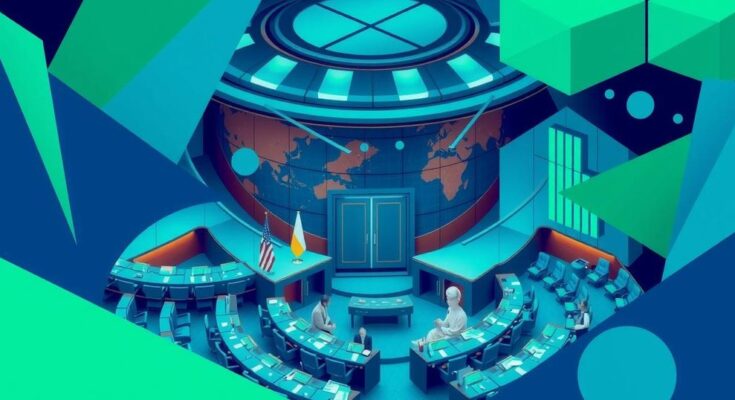Argentina’s Lower House approved President Milei’s emergency decree to boost IMF borrowing, aiming to strengthen Central Bank reserves and manage public debt. The vote included broad political support despite opposition from certain parties. Public demonstrations advocating better wages occurred alongside this political development, highlighting ongoing social issues.
On Wednesday, Argentina’s Lower House approved President Javier Milei’s Emergency Decree (DNU), enabling further borrowing from the International Monetary Fund (IMF). The decision, which passed with 129 votes in favor, 108 against, and 6 abstentions, garnered support from the ruling La Libertad Avanza (LLA) and several other parties. Opposition primarily came from the Peronist Unión por la Patria (UxP) and leftist factions.
In a statement, the Office of the President expressed appreciation for the deputies who backed the decree. It emphasized, “President Milei thanks the 129 deputies, belonging to the great majority of the political blocs, who understood the mandate of the ballot boxes and gave a message to our creditors that shows maturity and greatness: the fight against inflation is a State policy in our country.”
The agreement aims to ensure a public credit operation for the National Treasury to address debt with the Central Bank and reduce overall public debt. The statement further clarified, “Argentines made an enormous effort to achieve monetary, financial, and macroeconomic stability, and the reorganization of the Central Bank is one more step to consolidate this process.”
Casa Rosada reiterated the importance of economic stability, noting, “Stability is the basis for a future where the purchasing power of wages is not eroded by inflation.” The government expressed commitment to pursuing a definitive disinflation process and removing exchange restrictions without pause.
Amid this development, a sizeable retirement march, featuring citizens advocating for improved wages and medical assistance, occurred with heightened security outside Congress. The event proceeded without significant incident, in contrast to the previous week’s disturbances.
However, freelance photojournalist Pablo Grillo, injured during last week’s events, remains in a delicate condition. His father reported a positive update, indicating Grillo has opened his eyes and moved his hands, raising hopes for his recovery. Due to this situation, President Milei had to cancel an upcoming trip to Israel.
The approval of President Javier Milei’s Emergency Decree by Argentina’s Lower House marks a significant step towards addressing the country’s financial challenges by facilitating further borrowing from the IMF. This action reflects a commitment to combating inflation and stabilizing the economy, supported by a coalition of political parties. With significant public demonstrations advocating for improved social conditions, the government’s response is under scrutiny, particularly in light of ongoing challenges facing media personnel and public order.
Original Source: en.mercopress.com




